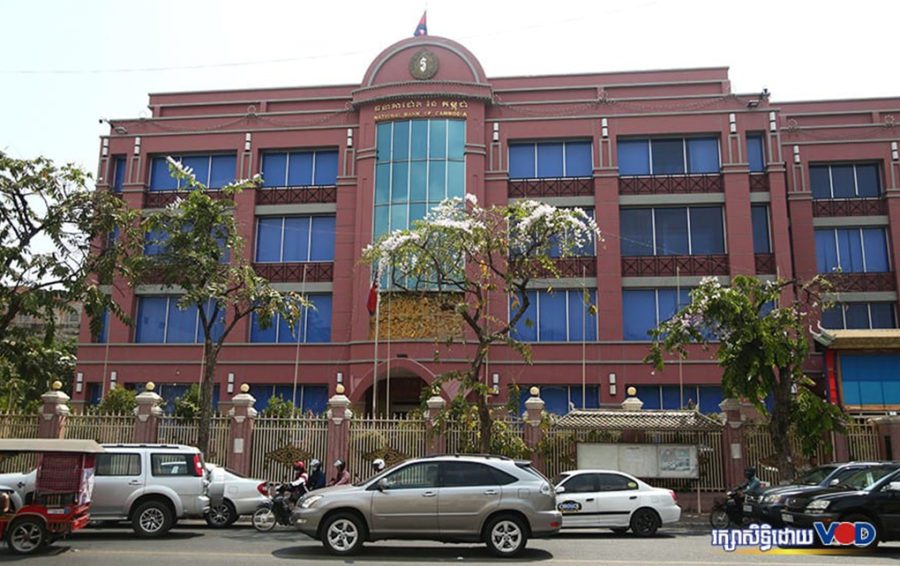The E.U. has listed Cambodia as one of 12 “high-risk” countries with deficient anti-money laundering and counter-terrorism financing efforts, but the government on Friday said officials were working hard to get the nation off international watch lists.
The European Commission on Thursday adopted a new list of countries with “strategic deficiencies” in their anti-money laundering and counter-terrorism financing regimes. The commission said its list was now “better aligned” with those from the Financial Action Task Force (FATF), an inter-governmental money-laundering watchdog.
Cambodia was put back on the FATF’s “grey list” in February 2019 for being deemed deficient in preventing illegal money flows both into and out of the country. The listing can create difficulties for Cambodians in accessing the international financial system.
Cambodian authorities have seized millions of dollars in suspected illicit cash from suspects bringing it into the country in recent years.
The E.U.’s revised listings — and application of new protective measures — will apply as of October 1, the commission said in a statement. Myanmar was also added to the list, while Laos was delisted.
Under the E.U.’s Anti-Money Laundering Directive, countries’ laws and institutions for combating money laundering and terrorism financing are assessed in terms of customer due diligence and record-keeping requirements, reporting of suspicious transactions and other criteria, according to the European Commission.
Banks and other financial institutions must apply extra checks and due diligence monitoring on transactions involving listed countries, including obtaining additional information on the customer and approval from senior management when establishing business relationships, the commission said.
“The listing does not entail any type of sanctions, restrictions on trade relations or impediment to development aid but requires banks and obliged entities to apply enhanced vigilance measures on transactions involving these countries,” according to the commission’s website.
The Cambodia Financial Intelligence Unit (CAFIU), the National Bank unit tasked with combating money laundering, told VOD on Friday that authorities had been “working very hard to de-list the country from the grey list” since last year.
The unit did not answer emailed questions about what specific measures CAFIU was taking. But in a statement in February, CAFIU said financial institutions must comply with international regulations and pay close attention to clients who may be doing business with people or companies from North Korea or Iran, as well as closely monitor their history of operations and other business relations, and report information to authorities, as required by anti-money laundering laws.
Ngy Chanphal, a secretary of state at the Interior Ministry, said on Thursday that the government had created laws and strengthened measures to prevent criminals from illegally bringing money into the country.
In February, the government issued a proclamation on financial disciplinary sanctions for reporting failures in order to comply with anti-money laundering and terrorism financing laws.
“There is not any new issue. It is just that we try to follow through on the conditions they require of us,” Chanphal said regarding the new E.U. listing.
In February 2019, the Financial Action Task Force (FATF) added Cambodia to its watch list of countries with deficiences in countering money laundering and the funding of terrorism.
It recommended risk-based supervision for real estate, casinos and banks; sector-specific outreach to casinos, real-estate and money-or-value-transfer service providers; and an increase in money-laundering investigations and prosecutions.
A year later, in February 2020, the task force said the government had taken steps toward improving its policies, including by demonstrating an increase in domestic coordination to “enhance” money-laundering investigations.
But FATF also repeated many of the same recommendations from 2019, again advising the government to implement risk-based supervision for the real estate, casino and banking sectors; amend laws to address gaps; and increase investigations and prosecutions, as well as the freezing and confiscation of criminal assets.
Last year, nine foreign suspects were arrested for illegally bringing $7 million in cash into Cambodia, claiming they won the money while gambling in Macau and were investing in local real estate, according to immigration authorities.
An official said at the time that he suspected the smuggling of cash was part of an organized operation rather than individual actions.
A 2019 report from the U.N. Office on Drugs and Crime warned that a crackdown on money laundering in Macau in 2014 appeared to have led to a shift in criminal activities to Southeast Asia, “especially to jurisdictions in the Mekong region that lack regulatory oversight and enforcement capacity.”
“Extensive casino complexes in Cambodia’s border areas and in Phnom Penh have also been identified as locations for bulk cash smuggling and the laundering of organized crime revenues,” the report said.
On Thursday, political analyst Em Sovannara expressed concern that Cambodia’s designation on the E.U. list could create challenges for the financial sector.
“Investors will have difficulty doing business with us,” Sovannara said. “Whenever they come to do business with us, they will be investigated about where the source of the money came from.”
According to the 2019 Basel Anti-Money Laundering Index, Cambodia was rated as having the 16th worst risk for money laundering in the world out of 125 countries measured, improving from seventh most risky of 129 nations in 2018.
(Translated and edited from the original article on VOD Khmer)













